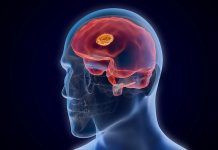
When we think about regular health check-ups, we often think about checking our blood pressure or sugar levels.
But our minds need regular check-ups too, especially as we grow older. An important part of this is checking our memory and our thinking abilities.
Many older adults think that tests that can spot early signs of memory and thinking problems are a good idea. In a survey of people aged 65 to 80, eight out of ten people said they saw the benefit of such tests.
Six out of ten people believed that doctors should offer these quick memory tests to all older adults each year.
The Impact of Test Results
If a memory test showed signs of trouble, almost all of the people surveyed said it would make them take action.
They would try to keep their brains healthy (96%) and also make plans for their health care and finances (75%).
Despite this, many older adults said they hadn’t had a memory test in the past year to look for early signs of Alzheimer’s disease or other types of dementia.
Eight out of ten people reported this. And almost six out of ten people said they had never had such a test. This is despite the fact that Medicare, the health insurance program for older adults, covers these brief tests.
Blood Tests for Alzheimer’s Disease
In addition to memory tests, the survey also asked older adults about blood tests. These tests can help find Alzheimer’s disease by looking for signs of certain proteins in the brain.
However, very few older adults were familiar with these blood tests. Only about one in six people said they knew about such tests.
Less than one in a hundred people had had one, and only about one in ten people said they would like one now. Half of the people surveyed said that these blood tests should be available to all adults over 65.
The Importance of Early Diagnosis
Alzheimer’s disease and other types of dementia often go unnoticed. Up to half of Americans with Alzheimer’s disease or another form of dementia don’t receive a formal diagnosis, even when they have clear symptoms.
As we have more options for diagnosing and treating these conditions, it’s important to understand how older adults view them. This can help us support those who are tested and receive results.
Other Ways to Protect Our Minds
There’s growing research that shows that other factors can help reduce the risk of memory and thinking problems in older adults.
These include keeping our blood pressure under control, staying physically active, and staying socially connected.
However, only about one in six older adults thought that memory tests weren’t worth it until we have more treatment or prevention options.
The Role of Health Care Providers
Doctors, nurses, and other health care providers play a crucial role in the early detection of memory and thinking problems.
More than eight out of ten older adults said they would rely on their healthcare providers for memory tests or blood tests.
The Need for More Testing
Despite the belief in the importance of these tests, there’s a lot of variation in who gets them.
Women were more likely than men to say that they would be very upset if a memory test or blood test suggested they had early signs of dementia.
And, only about one in ten older Hispanic adults reported having had a memory test in the past year. This was less than the number of non-Hispanic white and non-Hispanic Black respondents.
The results of the survey show that we need to work harder to make sure all older adults get tested. This includes improving awareness of Medicare annual wellness visits, which include tests for memory and thinking problems.
As one expert puts it, “everyone should have access to memory testing as they age.” It’s a crucial part of keeping our brains healthy as we get older.
If you care about Alzheimer’s, please read studies about small changes in movement that may predict Alzheimer’s disease and findings that deaths from Alzheimer’s are far more common in these places in the U.S.
For more information about brain health, please see recent studies about two common habits that can make your brain age fast, and results showing that COVID-related brain damage is more likely in these people.
Follow us on Twitter for more articles about this topic.
Copyright © 2023 Knowridge Science Report. All rights reserved.



